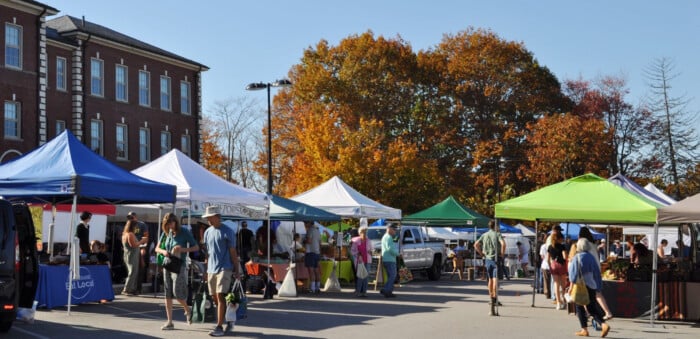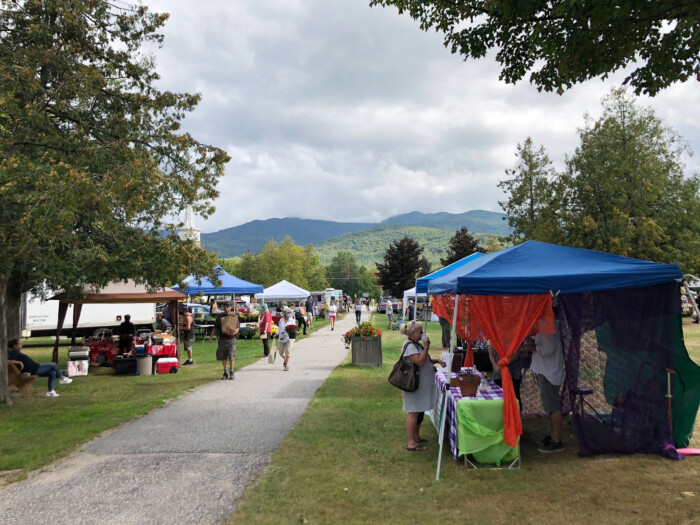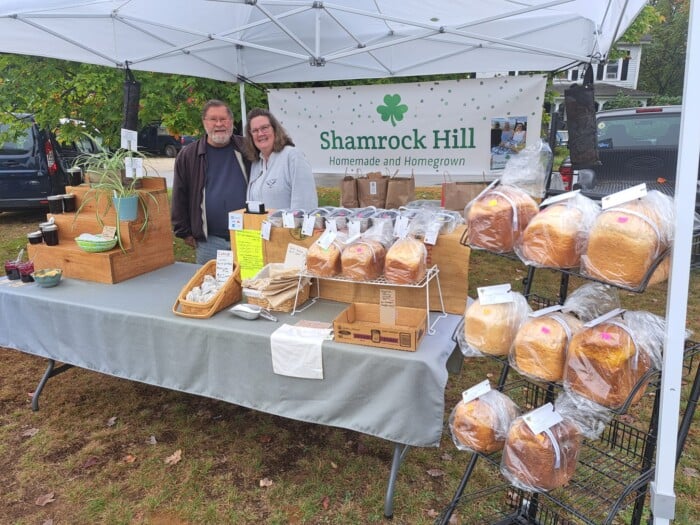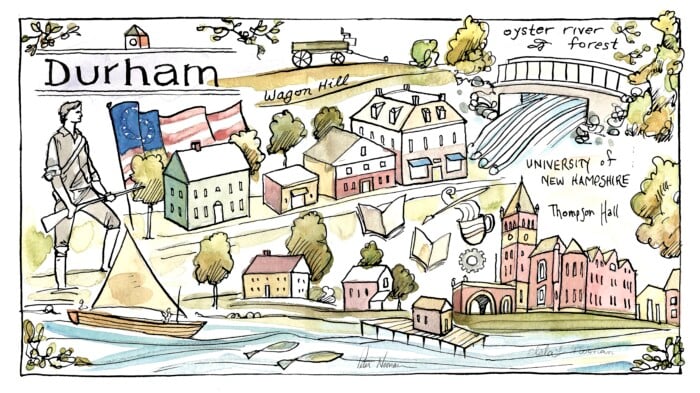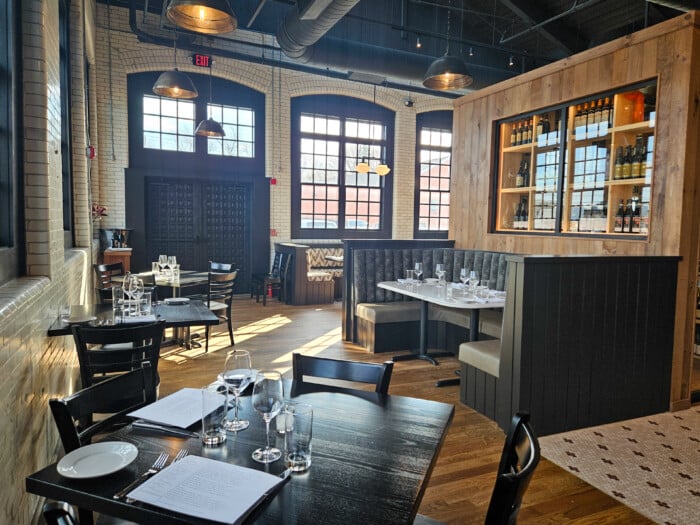Farmers Market Spotlight: Seacoast Eat Local

With Seacoast markets in Portsmouth, Exeter, Dover and Durham, Seacoast Eat Local has something for everyone wherever they want to go. The community-oriented markets are made up of a variety of different vendors who sell fruit, seafood, meat, flowers, maple syrup, hot prepared food and more. Photo courtesy of Seacoast Eat Local
Seacoast Eat Local, the 501(c)3 nonprofit behind four farmers markets on New Hampshire’s coast, was founded in 2005, when a group of Seacoast-area farmers and consumers launched an “eat local challenge.”
The goal? Only eat foods produced within 100 miles.
Though the grassroots organization has expanded far beyond a simple challenge, the core mission remains the same. “Our key goal is to connect local producers with consumers,” says Morgan Morani, community engagement programs manager for the group, which manages both winter and summer markets, and also publishes Seacoast Harvest, a free resource for finding locally-grown food.
“In order to be a vendor at our markets — any type of vendor, including crafters — you need to be local,” Morani says.
Local, in this case, means Rockingham and Strafford counties in New Hampshire, plus York County in Maine. Farmers must be located in one of those regions, and local food producers must use majority local ingredients in their final products, with some exceptions. “It’s hard to source citrus locally (in New Hampshire),” Morani says.
The group hosted its first winter farmers market in 2007, then got involved with the region’s summer markets primarily as a resource for facilitating the acceptance of SNAP and EBT incentives for low-income individuals who wanted to shop. In 2022, the markets in Durham, Dover, Exeter and Portsmouth were looking for new leadership — so Seacoast Eat Local stepped in.
Having four markets in the region means you can shop for local products most days of the week: In the summer, Durham is open Mondays, Dover on Wednesdays, Exeter on Thursdays and Portsmouth on Saturdays. Each offers a slightly different vibe, both in size and vendor selection. According to Morani, Durham and Dover are the smallest, with eight to 15 vendors on average. “(They’re) more like your average grocery shop,” she says. “You’ve got your fruits, veggies and meats.” These two are also dog-friendly, unlike the busier markets which are limited, pooch-wise, by their location’s restrictions.
With 30 to 50 vendors on average, Portsmouth’s market has historically been the largest, although “Exeter is giving it a run for its money,” Morani says. The latter is the group’s busiest weekday market, and offers the most prepared food options. At the Saturday market in Portsmouth, Morani says there are more specialty products and crafters.
“We really try and focus on keeping a balanced market and not necessarily allowing a lot of (vendors) in the same category to attend,” Morani says. If a vendor who applies isn’t a fit for any of the Seacoast Eat Local spots, she can help them connect with other markets across the state. “Because I worked for the food bank and ran the incentive program for the state, I have a lot of contacts across the state,” Morani says.
Dover has been the group’s most challenging market, but Morani is optimistic about 2024, since the market has moved to the recently-renovated Jenny Thompson Outdoor Pool parking lot. In addition to being close to the pool and a skate park, “it’s on a busier intersection, so it should get a lot of foot traffic based on people driving by.”
The group tries to have local musicians perform at every market, along with other special events — ranging from educational programs to fundraisers like the Halloween pumpkin smash — throughout the season. There are activities for kids too, like coloring and crafting booths.
Charitable initiatives remain at the core of Seacoast Eat Local. During September, the Portsmouth, Exeter, and Dover markets participate in the Vouchers for Veterans program, which gives any New Hampshire or Maine resident with a valid military or veteran ID $20 to spend at the market. Throughout the season, all of the markets accept SNAP and EBT.
In addition, Seacoast Eat Local has a matching program to help make those credits go further. If a shopper uses their EBT card to get, say, $10 in farmers market tokens, Seacoast Eat Local will give them the same dollar amount in fruit and vegetable coupons. “There’s no limit. They could do a dollar; they could do $500,” Morani says. “We match them dollar for dollar.”


